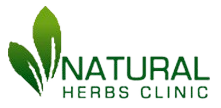Bronchiectasis Remedies That Deliver Real Results: From Struggling to Thriving

Bronchiectasis is a chronic respiratory condition that affects the lungs, leading to persistent cough, excessive mucus production, and frequent lung infections. It occurs when the airways (bronchi) become abnormally widened, leading to a build-up of mucus that can harbor bacteria and cause repeated infections. While conventional treatments such as antibiotics and bronchodilators are typically prescribed to manage symptoms, many people are now seeking Natural Remedies for Bronchiectasis that can complement or, in some cases, enhance traditional therapies.
What Is Bronchiectasis?
Bronchiectasis is a chronic lung disease characterized by irreversible widening or damage to the bronchi—the large air passages in the lungs. This damage results in mucus build-up, frequent infections, and inflammation. Over time, this cycle of infection and inflammation can cause further damage to lung tissue, leading to breathing difficulties and other health complications.
Related Article: 10 Powerful Bronchiectasis Remedies That Will Transform Your Breathing!
Understanding Bronchiectasis
Before delving into remedies, it is crucial to understand the nature of bronchiectasis. This condition may develop after severe lung infections like pneumonia or tuberculosis, or it may be associated with other health issues like cystic fibrosis, immune system disorders, or chronic obstructive pulmonary disease (COPD). Symptoms can vary in severity but typically include:
- Chronic coughing
- Production of large amounts of sputum
- Shortness of breath
- Recurrent chest infections
- Wheezing and fatigue
Early diagnosis and a comprehensive treatment plan are key to slowing disease progression and improving quality of life.
The Growing Interest in Natural Remedies for Bronchiectasis
The rise of holistic health awareness has led to increased interest in Natural Remedies for Bronchiectasis. Unlike pharmaceutical treatments that often come with side effects, natural remedies aim to support the body’s healing processes using non-invasive, nutrient-rich, and often plant-based options. These remedies can play a critical role in reducing inflammation, thinning mucus, boosting the immune system, and improving overall lung function.
Related Article: Managing Bronchiectasis: The Power of Herbal Supplement for Bronchiectasis
1. Herbal Treatments That Support Lung Health
Herbal medicine has been used for centuries to treat respiratory ailments. Some herbs are particularly beneficial for people with bronchiectasis:
- Mullein: Known for its soothing properties, mullein helps clear mucus from the lungs and reduce inflammation.
- Licorice Root: This herb is both anti-inflammatory and soothing for the throat and bronchial passages.
- Thyme: With its antimicrobial and expectorant properties, thyme can help loosen mucus and fight respiratory infections.
- Eucalyptus: Often used in steam inhalations, eucalyptus oil can relieve congestion and promote easier breathing.
- Oregano Oil: A natural antibiotic and antiviral, oregano oil can help prevent the growth of harmful bacteria in the lungs.
These herbs can be taken as teas, tinctures, capsules, or used in steam therapy. It is essential to consult with a qualified herbalist or healthcare provider before starting any herbal treatment.
2. All Natural Organic Supplements for Bronchiectasis Relief
Supplements derived from natural sources can be a powerful ally in managing bronchiectasis. Choosing All Natural Organic Supplements ensures that the body receives clean, high-quality nutrients free from synthetic additives. Key supplements include:
- N-acetylcysteine (NAC): This amino acid derivative helps thin mucus, making it easier to expel and reducing the risk of infection.
- Vitamin C: A potent antioxidant that boosts the immune system and helps repair lung tissue.
- Vitamin D: Low levels of vitamin D are linked with increased respiratory infections. Supplementation can help reduce inflammation and support immune health.
- Quercetin: A natural flavonoid with anti-inflammatory and antihistamine properties.
- Omega-3 Fatty Acids: Found in fish oil, these help reduce lung inflammation and improve overall respiratory function.
- Probiotics: Gut health is closely linked with immune function. High-quality probiotics can help maintain a balanced microbiome, reducing susceptibility to infections.
Taking these supplements regularly, especially under the guidance of a healthcare practitioner, can make a meaningful difference in symptom management.
Related Article: Foods to Avoid and Foods to Include in a Bronchiectasis Diet
3. Diet and Nutrition: Food as Medicine
A nutrient-rich diet is fundamental in managing chronic illnesses like bronchiectasis. The focus should be on anti-inflammatory foods that support lung and immune health:
- Leafy Greens: Rich in antioxidants and vitamins
- Berries: Packed with immune-boosting vitamin C
- Garlic and Onion: Natural antibiotics
- Turmeric: Contains curcumin, a powerful anti-inflammatory compound
- Nuts and Seeds: Excellent sources of vitamin E and omega-3s
- Whole Grains: Promote overall wellness and energy levels
Avoiding processed foods, refined sugars, and dairy can also help reduce mucus production and inflammation.
4. Breathing Exercises and Physical Activity
Regular exercise and breathing techniques can enhance lung function and help clear mucus.
- Chest Physiotherapy: Techniques like percussion and postural drainage help mobilize mucus from the lungs.
- Controlled Breathing: Practices such as pursed-lip breathing and diaphragmatic breathing improve oxygen intake and efficiency.
- Yoga and Tai Chi: These gentle forms of exercise improve flexibility, lung capacity, and reduce stress.
- Cardiovascular Exercise: Activities like walking, swimming, and cycling can strengthen the respiratory muscles and improve endurance.
Consistency is key; even short daily routines can provide long-term benefits.
5. The Role of Hydration
Drinking plenty of fluids is essential in keeping mucus thin and easier to expel. Aim for at least 8-10 glasses of water per day. Herbal teas, especially those with expectorant herbs like ginger or peppermint, can offer additional benefits.
6. Steam Therapy and Essential Oils
Steam therapy is a simple yet effective way to loosen mucus and improve breathing. Adding essential oils can amplify the effects:
- Eucalyptus Oil: Opens up airways
- Peppermint Oil: Offers a cooling sensation and helps with congestion
- Tea Tree Oil: Has antimicrobial properties
Use a bowl of hot water with a few drops of essential oil and inhale the steam for 10-15 minutes. This can be especially helpful before bedtime.
Related Article: Herbal Remedies for Bronchiectasis: Powerful Plants to Fight Symptoms
7. Lifestyle Adjustments and Environmental Factors
Making changes in your immediate environment can prevent symptom flare-ups:
- Air Purifiers: Reduce exposure to allergens and pollutants
- Avoid Smoke and Fumes: Stay away from tobacco smoke, chemical cleaners, and polluted air
- Humidifiers: Keep air moist to help with breathing
- Hygiene: Practice good hygiene to avoid infections
Reducing stress through mindfulness, meditation, or hobbies can also positively impact overall well-being.
8. Support From Herbs Solutions By Nature
A notable mention in the world of natural bronchiectasis remedies is Herbs Solutions By Nature, a holistic company dedicated to creating all-natural treatments. They offer specialized herbal formulas designed to target lung health, boost the immune system, and enhance respiratory function without side effects. Their products are often made using ethically sourced herbs and undergo rigorous quality checks to ensure efficacy and safety.
Whether it’s capsules, teas, or tinctures, the offerings from Herbs Solutions By Nature have gained popularity among users seeking reliable, natural support for chronic conditions like bronchiectasis.
9. Integrating Natural Remedies with Medical Care
It is important to remember that while Natural Remedies for Bronchiectasis can be highly effective, they should not completely replace conventional medical treatments unless advised by a qualified healthcare provider. An integrative approach—combining the best of natural and conventional medicine—often delivers the best outcomes.
Regular monitoring through pulmonary function tests, sputum cultures, and imaging studies can help assess the effectiveness of your treatment plan. Always inform your doctor about any supplements or herbal products you are using.
Related Article: How to Manage Bronchiectasis Chest Pain: Natural Treatment Options
10. Real-Life Success Stories
Many individuals living with bronchiectasis have reported significant improvements through natural remedies. For instance, Jane, a 45-year-old teacher from Oregon, struggled with recurring infections and fatigue. After incorporating NAC, vitamin C, and herbal teas into her daily routine, along with regular steam therapy, she noticed a dramatic improvement in her energy levels and a reduction in flare-ups.
Another inspiring story is that of Carlos, a retiree in Florida who began using a lung health formula from Herbs Solutions By Nature and saw marked improvement in his coughing spells and breathlessness.
These testimonials underscore the potential of natural remedies to transform lives when used thoughtfully and consistently.
Conclusion: Thriving with Bronchiectasis
Living with bronchiectasis doesn’t have to mean a life of struggle. Through a holistic approach that includes Natural Remedies for Bronchiectasis, All Natural Organic Supplements, and support from trusted providers like Herbs Solutions By Nature, individuals can experience real relief and improved quality of life.
By embracing the healing power of nature, staying informed, and working closely with healthcare professionals, many people have successfully transitioned from merely coping with bronchiectasis to truly thriving. Whether you’re at the beginning of your journey or looking to enhance your current regimen, natural remedies may be the key to breathing easier and living better.




